Cefusa and the UPCT work on the sustainability of the farm of the future
Company and institution renew the Area of Sustainable Environmental Management in Pork Production agreement to obtain the Ministry’s recognition as a validated slurry treatment technique for emissions mitigation.
The livestock company Cefusa, part of Grupo Fuertes, and the Technical University of Cartagena (UPCT), are working to improve the sustainability of pork farms and the environmental conditions of the area where they are located.
This is the objective of the Area of Sustainable Environmental Management in Pork Production, directed by Doctor Ángel Faz and which has been renewed today for the third year running. Also at the event were the president of Grupo Fuertes, Tomás Fuertes; the managing director of Cefusa, Juan Cánovas; and Inmaculada Cánovas, assistant general manager of the livestock company.
This collaboration enables work on the sustainable environmental management of slurry, taking into account its composition and the aspects relating to its efficient use as a water and nutrient resource for agriculture. Valid, efficient techniques which the livestock sector is able use have been introduced. They are always based on the principles of circular economy, water footprint reduction and carbon footprint mitigation, taking the current and future legislation into account at all times.
The integral management of these organic subproducts takes advantage of their nutrients for enriching agricultural soils, and reduces greenhouse gas and ammonium emissions, by using an integral treatment system. This system is made up of staggered solid-liquid separation and purification using artificial wetlands (also known as biofilters).
The commitment of Cefusa, a livestock company which supplies ElPozo Alimentación, is to improve resource management in facilities by means of circular economy, and reduce the carbon footprint and the water footprint through the treatment and the recovery of these subproducts generated by its activity.
Cefusa and ElPozo Alimentación are committed to more environmentally safe and respectful models, by applying the best techniques available to guarantee more sustainable and efficient solutions from an economic and environmental standpoint for the future of the livestock sector and of the rural environment.
Development of the Field
Research, education, outreach and follow-up activities have been carried out to meet the Area’s objectives. As such, farm studies have been conducted consisting of leach tests, agricultural recovery in cereal cultivation, and biofilter studies with different types of plantation and residence times in order to determine the purification efficiency. The results obtained to date are highly satisfactory, as predicted in the Area objectives. The purification technique is perfectly adapted to the characteristics of soil and climate in south-east Spain.
Four types of biofilter are currently being worked with. Gas emissions are measured at each purification phase to obtain recognition as a validated technique for gas emissions mitigation.
Moreover, the UPCT has prepared and will teach a 25-hour University Extension Course on this subject.
About Cefusa
Cefusa is the livestock company of Grupo Fuertes. It is a modern, sustainable and dynamic organisation which is committed to the implementation of a single global system of traceability based on the total quality of the production process. It has livestock facilities and feed mills in various municipalities, equipped with the latest technological and scientific advances, capable of fully optimising the production system. Cefusa was also the first livestock company to achieve the IAWS Certified Animal Welfare Commitment seal from Interporc.
About the Area
The Area of Sustainable Environmental Management in Pork Production is coordinated by Ángel Faz Cano, Doctor of Science and Professor of the Technical University of Cartagena, specialised in the treatment, recovery and management of organic subproducts derived from pork production and environmental rehabilitation. He heads the Group for Soil and Water Management, Use and Recovery at the Technical University of Cartagena.

